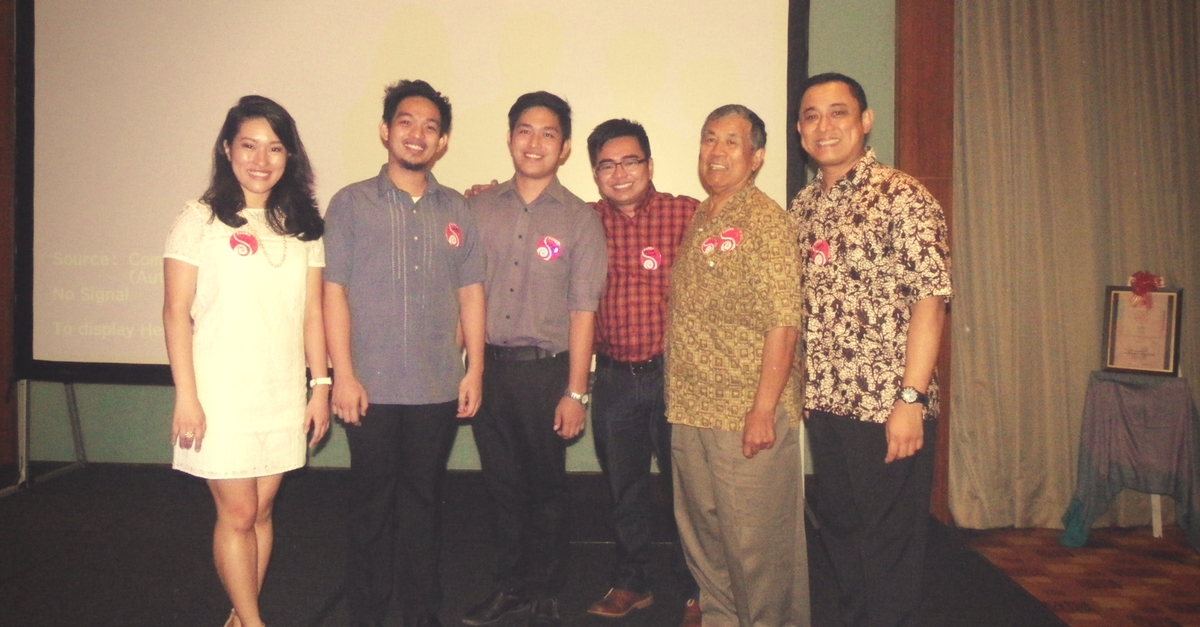 Professor Santamaria (right) with fellow participants (L to R: Regina Angelica Bautista, York University; Amiel Kim Quan Capitan, PWU, Philippines; Jose R. Taton Jr., PWU, Philippines; Patrick Alcedo, York University, Canada; Ricardo D. Trimillos, University of Hawaii at Manoa). Photo by Brian Viray.
Professor Santamaria (right) with fellow participants (L to R: Regina Angelica Bautista, York University; Amiel Kim Quan Capitan, PWU, Philippines; Jose R. Taton Jr., PWU, Philippines; Patrick Alcedo, York University, Canada; Ricardo D. Trimillos, University of Hawaii at Manoa). Photo by Brian Viray.Professor MCM Santamaria of the UP Asian Center presented a paper, “Language Convergence and Identity in Performance: Exploring Intercultural Encounter in the Sama-Bajau Sangbaian Pangigalan Tribute Songs” at the 4th Symposium of the International Council of Traditional Music Study Group on Performing Arts of Southeast Asia (ICTM-PASEA) recently held from 30 July to 8 August 2016 in Penang, Malaysia.
As a study group of the ICTM, the Performing Arts of Southeast Asia (ICTM-PASEA) was officially established in 2009 in Malaysia to bridge a gap of communication and interaction among scholars of Southeast Asian music and dance. To promote its mission, the study group convenes a symposium every two years in a different country in Southeast Asia and presents academics in this field with an opportunity to engage with like-minded scholars.
The UP Asian Center offers M.A. programs in Asian Studies with four fields of specialization: Northeast Asia, Southeast Asia, South Asia, and West Asia. The Center also has an M.A. program in Philippine Studies that allows students to major in Philippine society and culture, Philippine foreign relations, or Philippine development studies. The Center offers a Ph.D. program in Philippine Studies in conjunction with the College of Arts and Letters and the College of Social Sciences and Philosophy. Get an overview of these programs. The Asian Center also houses a peer-reviewed, open-access journal, Asian Studies: Journal of Critical Perspectives on Asia. It has published several books and monographs, and hosts or organizes various lectures and conferences.

